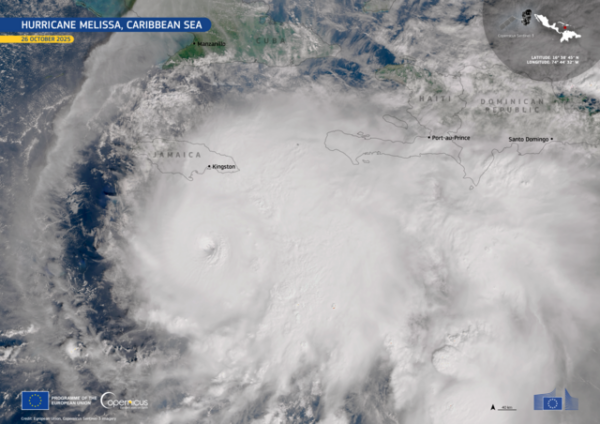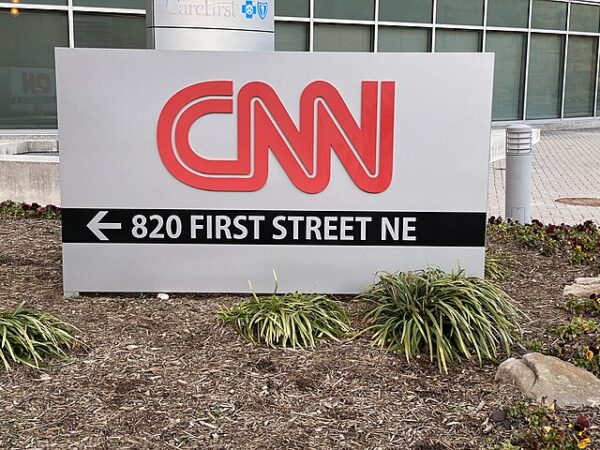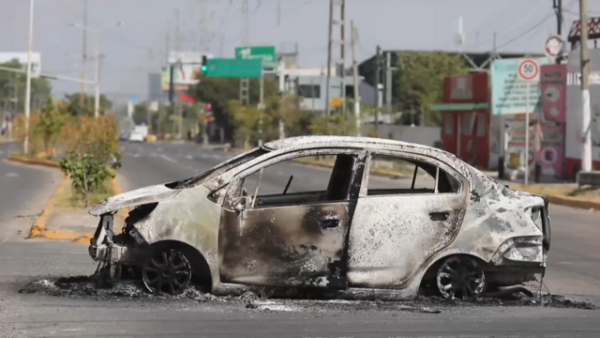The U.S. military has shifted key operations across the Caribbean to avoid the path of Hurricane Melissa, which made landfall in Jamaica on Tuesday, forcing adjustments amid an already heightened regional presence targeting drug traffickers.
The storm’s advance has complicated ongoing missions in what officials describe as “deadly operations” against suspected smugglers along maritime routes now threatened by severe weather.
“They have implemented inclement weather plans and moved away from any area where current or forecasted weather conditions are hazardous and could potentially pose unacceptable levels of risk,” a spokesperson for U.S. Southern Command (SOUTHCOM) told The Washington Examiner, withholding movement specifics for security reasons.
The deployment includes multiple warships, dozens of aircraft, and several thousand personnel—among them the USS Gerald R. Ford carrier strike group now repositioning in the region. “Despite these recent actions, they remain ready and able to accomplish their assigned missions with the highest degree of professionalism, utmost excellence, and unrivaled expertise,” the spokesperson said.
On Monday, Secretary of War Pete Hegseth disclosed that U.S. forces had carried out three strikes in the eastern Pacific against four vessels, leaving 14 dead and one survivor. The campaign, which has destroyed more than a dozen boats since its launch, has claimed over 50 lives, with the administration describing the deceased as “armed fighters.” Officials have not released evidence confirming the ships carried narcotics.
Beyond combat duties, the military often pivots to humanitarian operations in the wake of natural disasters—roles that could expand following Hurricane Melissa. “As part of their readiness training, our servicemembers always approach every mission and situation with safety as a paramount consideration,” the SOUTHCOM spokesperson added. “They are well prepared to respond to a range of conditions and scenarios, including emergencies and natural disasters, to ensure the health and welfare of the force, and safeguard vital defense equipment and resources.”
Hurricane Melissa’s is approaching the limits of what physics can theoretically produce in a tropical cyclone.
Its central pressure is down to 896 hPa, while its maximum sustained wind speed is 180 mph. Cloud tops of -80°C are rare in the Atlantic, and more akin to what you… pic.twitter.com/KHud1BR5cc
— Chris Martz (@ChrisMartzWX) October 28, 2025
Separately, the U.S. Navy evacuated more than 800 non-essential personnel from Naval Station Guantanamo Bay over the weekend, according to Naval Air Station Pensacola. “The safety and well-being of our Navy family is always a primary concern,” said NAS Pensacola Commanding Officer Capt. Chandra “Mamasan” Newman. “The Sailors and civilian employees here are dedicated and adaptable, making sure they accomplish our Navy mission—and right now that’s taking care of our Navy family from Guantanamo Bay.”
[Read More: Rubio Leads To Deport Pro-Hamas Journalist]









